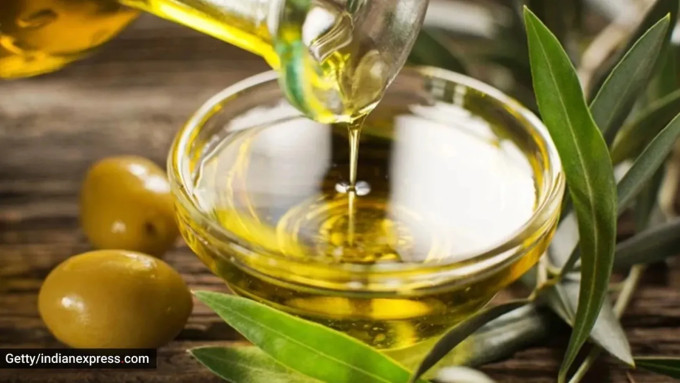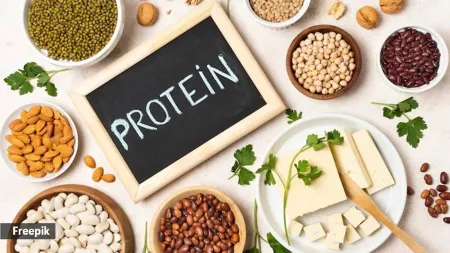Should you say no to cooking with sunflower, canola, and vegetable oils?
Considering the attention to one’s health and lifestyle, one of the most asked questions is which oil should be used for cooking. To simplify it, dietitian Lavleen Kaur said that one should keep trying to moderate their oils such that different foods should be cooked using different sources of fat.
For roti, go for desi ghee. Apply ghee on parathas. “Indian tadka in daals/veggies? Opt for mustard, sesame, or peanut oil (cold-pressed ‘kachhi ghani’ style),” said Kaur.

– For sautéing/steaming vegetables or salad dressing, olive oil is your friend. “Outside India? Avocado or grapeseed oil works great (but not for Indian tadka). Mix it up for omega-3 and omega-6 balance,” said Kaur.
The dietitian advised against using refined oils like canola, sunflower, safflower, vegetable, and palm oil.
“Stick to these tips for 3 months, and watch your health transform!” said Kaur.
Replacing saturated and trans fats with monounsaturated and polyunsaturated fats is good for your heart, said Dr Munna Das, consultant, interventional cardiologist and electrophysiologist, Narayana Hospital, Howrah.
“Non-tropical vegetable oils may be chosen to prepare your food which is a good option. Avoiding palm and coconut oil is very important as they contain more solid fats. A few more examples of solid fats are butter, lard, margarine, and tropic oils which should not be used too frequently for cooking,” said Dr Das.
However, Dr Dilip Gude, senior consultant physician, Yashoda Hospitals, Hyderabad said that all kinds of oils have some good characteristics and some bad in them. “No one oil is superior to others. It is always better to rotate and switch and use different kinds of oils in moderation,” said Dr Gude.
According to Dr Gude, safflower oil has less saturated fats and hence can be considered for cooking. “When used in moderation safflower oils are known to help in controlling blood sugars, cholesterol, and skin inflammatory conditions,” said Dr Gude.
 Extra virgin and virgin olive oil are cold pressed and considered to be less acidic and have a better nutritional composition (Source: Getty Images/Thinkstock)
Extra virgin and virgin olive oil are cold pressed and considered to be less acidic and have a better nutritional composition (Source: Getty Images/Thinkstock)
Soya bean, canola oil, and, grape seed, sesame, and corn oil are essentially less healthy. “For sauteing, and baking, avocado, and olive oil seem healthier alternatives. The benefits of olive oil however are lost when it’s very heated. Hence it’s always better to use for sauteing or sprinkling after the curry is done,” said Dr Gude.
Free radicals develop when any oil is heated to extreme especially as in frying. “Reheated and reused oils especially produce trans-fats which are dangerous and are known to accelerate atherosclerosis and are bad for the heart,” said Dr Gude.
Dr Gude mentioned that sunflower oil has high vitamin E and omega 3 fatty acids but like most oils, if used in excess it can result in inflammation and accelerated atherosclerosis. “Butter on the other hand is nutritious and has many nutrients like vitamins A, E, and K and helps ease inflammation through its supply of important fatty acids. But again moderation is the key,” said Dr Gude.
View this post on Instagram
A post shared by Lavleen Kaur (@dt.lavleen)
Dr Das also advised that one can choose extra virgin olive oil which stands out as a top choice for cooking. “It contains monounsaturated fats, which can help lower LDL (bad) cholesterol levels while maintaining HDL (good) cholesterol. Additionally, its high levels of antioxidants provide further benefits. Another excellent option is avocado oil, rich in monounsaturated fats and low in saturated fats. Its high smoke point makes it suitable for cooking at higher temperatures without oxidising and producing harmful compounds,” said Dr Das.
What to remember?
*If your oil starts to smoke or catch fire, it should be avoided as it starts to degrade once it reaches its smoke point.
*Choosing oils like extra virgin olive oil or avocado oil over sunflower, canola, and vegetable oils can significantly benefit heart health by reducing inflammation and improving cholesterol levels, said Dr Das.
Disclaimer: The copyright of this article belongs to the original author. Reposting this article is solely for the purpose of information dissemination and does not constitute any investment advice. If there is any infringement, please contact us immediately. We will make corrections or deletions as necessary. Thank you.





